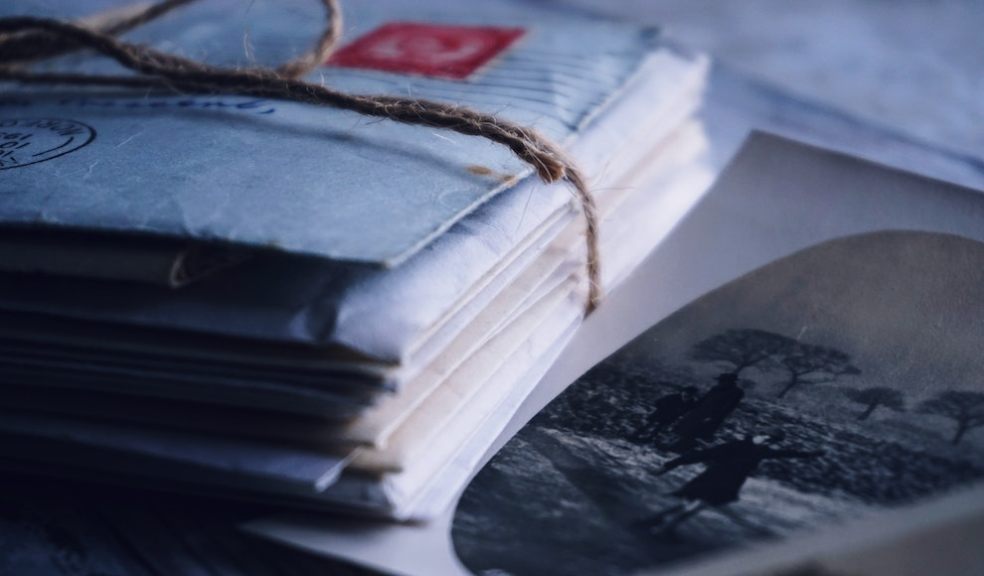
Of Lost Time Publishes Gandhi’s Historical Letters
August 8, 2022 marked the 80th anniversary of the Quit India Movement, a civil movement that launched in 1942 in response to Mahatma Gandhi’s call for immediate independence and an end to British rule in India. Despite opposition and hostility from several political groups, Gandhi displayed ultimate humanity and leadership as the Movement’s pioneer.
We have much to learn from our predecessors throughout history, especially when they have left behind correspondence that has been carefully preserved. In this case, Future Science Group’s literary unit, Of Lost Time, has published insights from Gandhi’s historical letters on its website. Of Lost Time dedicates itself to making historical letters and other forms of correspondence available to modern readers, allowing these individuals glimpses into defining moments in our global history.
On Jan. 12, 1933, Gandhi wrote one of his historical letters from behind iron bars after the authorities had incarcerated him for the tenth time. Even from prison, he hoped to advocate for a non-violent fight for justice. He wrote: “When the conviction goes deeper than the intellect, you will brave all dangers and risks and live the true life, and you will at once find that it is its own reward” — words that are reminiscent of the courage he is well-known for to this day.
Gandhi’s Support for the Quit India Movement
In 1942, Gandhi led the Indian National Congress and hundreds of thousands of civilians into a demonstration to support the Quit India Movement. The Movement’s mission was to pursue independence from the Crown through a compassionate, peaceful methodology. Gandhi famously proclaimed “Do or die” in a plea to his people on August 8 that summer. The authorities imprisoned him with at least 60,000 members of the Indian National Congress leadership that same day without trial.
From prison, Gandhi wrote a letter to the additional secretary of the government of India in New Delhi, calling out the government’s unjust priorities. He described the act of imprisoning thousands of people “on mere suspicion” as “unthinkable” when these individuals could “be usefully employed in relieving distress” for the millions of people in India who were “suffering from preventable starvation” — and thousands dying from it.
“The huge place in which I am being detained with a large guard around me, I hold to be a waste of public funds. I should be quite content to pass my days in any prison,” he wrote.
He also referred to his offer to meet a member of the Working Committee to discuss the situation, explaining that the authorities had rejected his proposal and repeating this offer.
Father of the Nation
Having come down with malaria, Gandhi was released from prison in 1944 as the British authorities didn’t want him to die in captivity and, as a result, “become a martyr to the cause of Indian independence.” He survived the disease and lived for another four years before Hindu fanatic Nathuram Godse shot him when he was on route to a prayer meeting. Gandhi raised his hands in the conventional Hindu gesture of greeting and died within half an hour.
Gandhi remains known and celebrated for resisting the authorities peacefully, which he called “satyagraha,” paving the way for a new state and rousing a population who prioritised empathy and non-violence. He has since been referred to widely as the “Father of the Nation,” inspiring future icons of peace like Martin Luther King Jr and Nelson Mandela.
Gandhi is one of many figures to have written compelling letters from prison. Of Lost Time has collated historical letters on the theme of incarceration in its Behind Bars collection, which features writers such as Sylvia Pankhurst, Paul the Apostle, and a variety of activists, criminals, artists, politicians, doctors, lawyers, and co-conspirators.
About Of Lost Time
Of Lost Time is a not-for-profit organisation that curates letter collections and other resources, each of which share correspondence from famous historical individuals and lesser-known figures with today’s readers. When compiled in collections of approximately 100 letters, these documents help readers dive deep into subjects like incarceration and sport. Of Lost Time also records informative videos that delve into the letters of influential historical personalities, from Napoleon Bonaparte, Winston Churchill, and Mark Twain to Van Gogh, Albert Einstein, and Ludwig van Beethoven.












